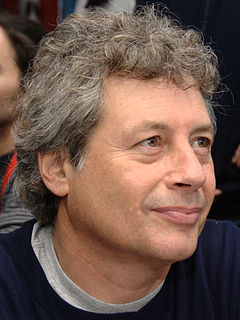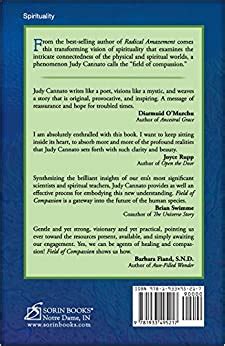A Quote by Alessandro Baricco
Perhaps sometimes life shows you a side of itself which leaves you with nothing more to say
Related Quotes
Autumnal -- nothing to do with leaves. It is to do with a certain brownness at the edges of the day ... Brown is creeping up on us, take my word for it ... Russets and tangerine shades of old gold flushing the very outside edge of the senses... deep shining ochres, burnt umber and parchments of baked earth -- reflecting on itself and through itself, filtering the light. At such times, perhaps, coincidentally, the leaves might fall, somewhere, by repute. Yesterday was blue, like smoke.
To see ourselves as we truly are—a wisp of love itself—is perhaps our deepest fear. But it is also our greatest grace. If we are to be the new human, we must begin by embracing love, which always seeks to incarnate itself. Love is enfleshed everywhere. Everywhere the Holy One is shouting and whispering, ‘Let me love you.’ And all that is asked of us is to receive. In reality, that is our life’s work. Nothing more, and certainly nothing less.
Pain does two things: It teaches you, tells you that you're alive. Then it passes away and leaves you changed. It leaves you wiser, sometimes. Sometimes it leaves you stronger. Either way, pain leaves its mark, and everything important that will ever happen to you in life is going to involve it in one degree or another.
Perhaps, after all, romance did not come into one’s life with pomp and blare, like a gay knight riding down; perhaps it crept to one’s side like an old friend through quiet ways; perhaps it revealed itself in seeming prose, until some sudden shaft of illumination flung athwart its pages betrayed the rhythm and the music, perhaps . . . perhaps . . . love unfolded naturally out of a beautiful friendship, as a golden-hearted rose slipping from its green sheath.
Perhaps the greatest discovery of my life, without question the greatest commitment, came when finally I had the confidence in God that I would loan or yield my agency to him-without compulsion or pressure, without any duress, as a single individual alone, by myself, no counterfeiting, nothing expected other than the privilege. In a sense, speaking figuratively, to take one's agency, that precious gift which the scriptures make plain is essential to life itself, and say, "I will do as you direct," is afterward to learn that in so doing you possess it all the more.
We do not need more material development, we need more spiritual development. We do not need more intellectual power, we need more moral power. We do not need more knowledge, we need more character. We do not need more government, we need more culture. We do not need more law, we need more religion. We do not need more of the things that are seen, we need more of the things that are unseen. It is on that side of life that it is desirable to put the emphasis at the present time. If that side be strengthened, the other side will take care of itself.
Life itself, too, is forever turning an infinitely vacant, dispiriting blank side towards man on which nothing appears, any more than it does on a blank canvas. But no matter how vacant and vain, how dead life may appear to be, the man of faith, of energy, of warmth, who knows something, will not be put off so easily.
Always say “yes” to the present moment. What could be more futile, more insane, than to create inner resistance to what already is? what could be more insane than to oppose life itself, which is now and always now? Surrender to what is. Say “yes” to life — and see how life suddenly starts working for you rather than against you.
All death in nature is birth, and at the moment of death appears visibly the rising of life. There is no dying principle in nature, for nature throughout is unmixed life, which, concealed behind the old, begins again and develops itself. Death as well as birth is simply in itself, in order to present itself ever more brightly and more like to itself.
Many expressions that are in common usage, and sometimes the structure of language itself, reveal the fact that people don't know who they are. You say: "He lost his life" or "my life," as if life were something that you can possess or lose. The truth is: you don't have a life, you are life. The One Life, the one consciousness that pervades the entire universe and takes temporary form to experience itself as a stone or blade of grass, as an animal, a person, a star or a galaxy. Can you sense deep within that you already know that? Can you sense that you already are That?





































